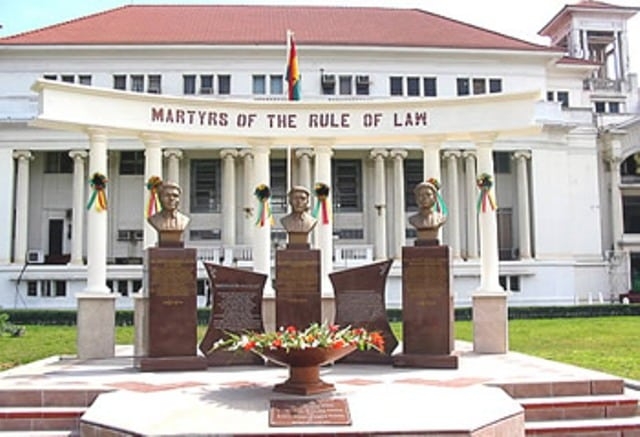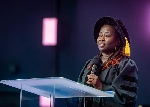It’s ‘unconstitutional’ for chiefs to endorse political party candidates – Supreme Court
 Ghana's Supreme Court
Ghana's Supreme Court
It is unconstitutional for chiefs to endorse political party candidates, Ghana’s Supreme Court has unanimously held.
It is, however, permissible for chiefs to praise or laud the policies of candidates, the court noted.
The November 2022 determination of the court said the decision is “consistent with the role of a chief as a champion and an advocate for the welfare and interests of their communities”.
Justice Emmanuel Yonny Kulendi, who authored the judgment, said chiefs must not be seen to be taking sides in political contests.
He sat on the mater along with Justices Jones Dotse, Gabriel Pwamang, Nene Amegatcher, Prof Ashie Kotey, Mariama Owusu and Lovelace Johnson.
The case was filed by legal practitioner Elorm Kwame Gorni against the Attorney General.
Mr Gorni had urged the apex court to interpret “active party politics” as used in Article 276(1) of Ghana’s Constitution, which provision states: ‘A chief shall not take part in active party politics, and any chief wishing to do so and seeking election to Parliament shall abdicate his stool or skin’.
His prayer to the court followed the endorsement of the 2020 presidential candidates of both the New Patriotic Party and the National Democratic Congress.
The Attorney General, however, held a different view
He argued that the word “active” is “clear, unambiguous and admits of no interpretation”, pointing out that “elective political office without more cannot be said to constitute an engagement in active party politics”.
In his view, chiefs’ right to freedom of speech and expression, as well as freedom of thought, conscience and belief, could not be curtailed.
The Supreme Court said the phrase “active party politics” merited interpretation, as far as what the “exact contours or boundaries of what constitutes such participation” was concerned.
Justice Kulendi said since chiefs occupy an elevated position in the social order and play an influential role in the governance and development of their communities and the country, “it is on account of the exceptional social and public status of chiefs that although chiefs are not public officers, the constitution disqualifies certain persons, notably persons convicted of offences involving fraud, dishonesty or moral turpitude from being chiefs.
“It is the same heightened concern with preserving and protecting the dignity of the chief’s office that partly underpins Article 276(1)’s banning of chiefs from taking part in active party politics.”
Source: ClassFMonline.com
Trending News

Health Minister to brief Parliament today on COVID-19 surge
03:01
Suame MP calls for due process in potential Chief Justice impeachment process
14:49
Ghana eyes GAVI graduation by 2030, sets sights on donor status — President Mahama
13:34
TEWU-GH issues seven-day ultimatum to GTEC over Governing Council representation dispute
11:26
AMA decongestion exercise leads to 14.4-tonnes reduction in CBD waste volume
02:55
2.45% electricity tariff hike necessary to avert ECG collapse - Majority Leader
12:12
NDC Legal Director urges suspended Chief Justice to challenge petitioners’ legitimacy
12:47
CSOs urge swift implementation of Affirmative Action Law, commend Gender Ministry’s efforts
11:13
Martyrs Day: NDC Legal Director slams attempts to link PNDC to NDC
02:39
Perez University College unveils new academic programmes amid milestone achievements
10:09



